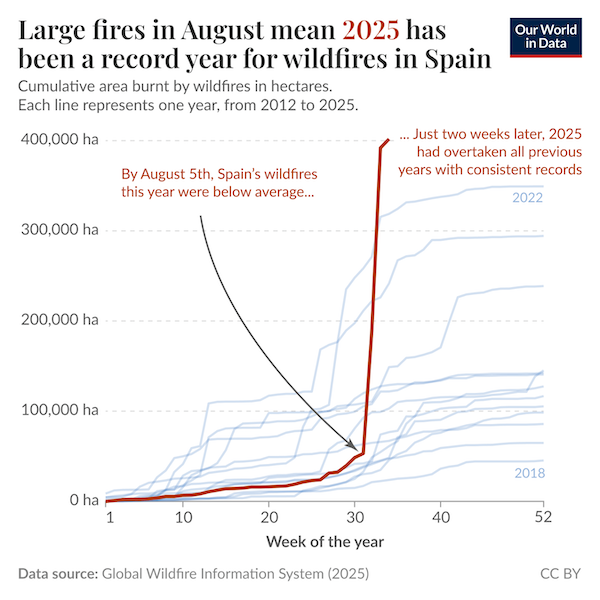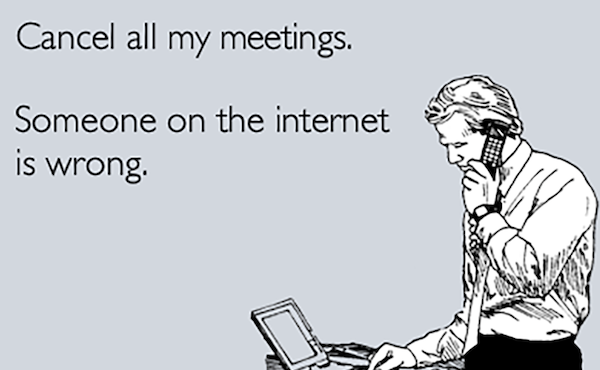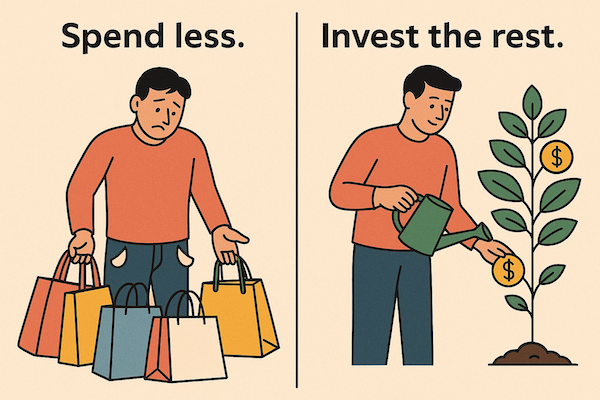Market scorecard
US markets closed at fresh record highs yesterday as indices opened in the green and stayed there throughout the day. The S&P 500, Nasdaq, Dow, and Russell 2000 all closed at record highs together for the first time since 2021. It's also a feat seen only 25 times in the last 100 years.
In company news, Nvidia rose 3.5% after investing $5 billion in its much weaker rival Intel, and agreeing to co-develop chips for PCs and data centres. Intel shares were up 22.8%. Elsewhere, FedEx jumped 5.5% after reinstating its full-year profit outlook. Lastly, Southern-themed restaurant chain Cracker Barrel slid 7.6% as weak sales guidance showed lingering fallout from its controversial and short-lived logo change.
In summary, the JSE All-share closed up a tiny 0.05%, the S&P 500 rose 0.48%, and the Nasdaq was 0.94% higher. Splendid.
Our 10c worth
One thing, from Paul

Here's some Friday advice: stay intellectually flexible, and don't get stuck on too many big theories about how the world works.
No one knows what will happen in the next 6 months. Over that time frame, anything can happen, good or bad. So, it's best to remain humble and not too opinionated.
Here's an example, based on a chart I saw on Our World in Data. The Global Wildfire Information System (GWIS) publishes weekly data on the area burned by wildfires around the world. At the beginning of August, Spain was on track for a relatively low year. Its running total for 2025 was below the average and far below former records.
One might have developed a "big theory" from such data, based on climate change, or safety awareness, or whatever.
But just two weeks later, land destroyed by fire in Spain had overtaken all of these previous years. They are having their worst wildfire year in two decades.
Byron's beats

It's never been easier to argue with strangers. You can just hop online, create an anonymous account on social media and type away. It baffles me how people get pleasure from this. Sadly, all it does is make the world more polarised.
Legendary philosopher Keanu Reeves has some good advice. "I'm at the stage in life where I stay out of arguments. Even if you say 1+1=5, you're right. Have fun."
The all-time master of one-liners, Mark Twain, also has some choice words on this topic. "Never argue with a fool, onlookers may not be able to tell the difference." Of course, he lived in an era before social media where humans had to converse directly with one another.
Here's my advice, just don't do it. If you see something you disagree with online, step away from your computer and go for a walk outside.
Michael's musings

In high-income countries, the leading causes of death are heart attacks, strokes and cancer. A healthy diet and regular exercise help to keep the odds down of the first two, but cancer has many possible causes, meaning that catching it early is the most effective way to beat it.
The tricky thing with cancer is that there are so many different variants, which makes it hard to do all the pre-emptive tests. Two companies are close to FDA approval for broad-based cancer screening blood tests, which will be more practical and cost-effective.
The first company is Exact Sciences, which has a blood test that can detect most leading cancer types for $690. It can't tell you which type you have, so a CT scan will be required if the blood test shows a positive result.
The second provider is Grail, which might sound familiar because it used to be part of Illumina, the maker of DNA sequencing machines. Grail's $949 blood test looks for DNA fragments in the bloodstream, meaning it can specifically identify certain cancers.
Early detection helps keep the costs of cancer treatment down later, so these tests may become mandatory for insured individuals over 60 years old. Wealthy private citizens might even start paying for these tests themselves from around the age of 40.
Bright's banter

When you're living paycheque to paycheque, saving money can feel impossible. But that's exactly when a safety net matters most. Without one, even a small emergency can send you into debt. A R15 000 surprise bill is enough to push many South Africans over the edge.
Savings creates stability, and this is particularly important when you're on a tight budget. Even a small emergency fund reduces stress, helps you avoid high-interest loans from mashonisas, and gives you flexibility for future opportunities.
So how do you actually save when there's nothing left at the end of the month? The best tricks often come from people who've been there themselves. And Reddit is full of practical hacks.
Here are some tips from online sources for saving money on a low budget:
Track every Rand
Write down every cent you spend. You'll be shocked how fast "just R100 here and there" adds up.
Meal prep
Having meals and snacks ready stops you from grabbing takeaways on busy nights - good for your wallet and your health.
Cash backs and discounts
It's old-school, but combining store deals on the Checkers 60x60 app and staying at the top of your eBucks can save a lot over time.
TikTok's favourite: envelope budgeting
Separate cash for petrol, groceries, and spending. Whatever's left goes into savings. Keeping it physical makes it harder to overspend.
Go cash-only for a while
Nothing shows you where your money goes faster than only using cash.
Pay yourself first
Move a small chunk of your pay straight into savings before you touch it. Automate it. Even R500 per month, it all adds up.
Declutter and take stock
Sell what you don't need, track what you already own, and clear expired food. It saves money and space.
Know your food prices
Keep a spreadsheet of grocery prices and only chase weekly deals. Over time, you'll never pay full price again.
Be smart with subscriptions
Sign up during Black Friday for the cheapest streaming deals. Unsubscribe before you get charged. Unsubscribe from stuff you don't use.
Respect your credit card
If you can't pay in full each month, you're overspending. Use cards only for rewards and discounts.
Increase your income
Cutting costs only goes so far. At some point, boosting income makes the biggest difference.
Start small, stay consistent
At the end of the day, wealth isn't built on luck or timing - it's built on discipline. Spend less than you earn, invest the difference, and let time do the heavy lifting. Markets will wobble, economies will cycle, but compounding never takes a day off.
The gap between what you make and what you keep is the engine; investing just makes it go faster. Stick to that formula long enough, and wealth becomes less of a dream and more of a certainty.
Linkfest, lap it up
The iPhone 17 is the 19th generation of iPhone. These brilliant devices have been around since 2004 - A visual look at the evolution of Apple's cornerstone product.
Advertising can be a good revenue stream for companies. Would you buy an appliance that showed you personalised ads? - Samsung brings ads to US fridges.
Signing off
Asian markets are a mixed bag this morning, with Australia leading gains. Melbourne-based Telix Pharmaceuticals jumped over 7% after Citi backed its prostate cancer drug as a potential blockbuster. The Bank of Japan surprised markets by announcing a plan to offload its massive exchange-traded fund holdings accumulated as part of its monetary easing program that ended last year.
In local company news, Bytes Technology said first-half trading went well, with gross invoiced income around GBP1.33 billion.
US equity futures are slightly lower pre-market. The Rand is trading at around R17.36 to the US Dollar.
Donald Trump and Xi Jinping are expected to hold a phone call today to determine the fate of TikTok. Can we all agree that boomers are tiresome?
Have a good weekend, next week is a short one, with a public holiday in the middle.